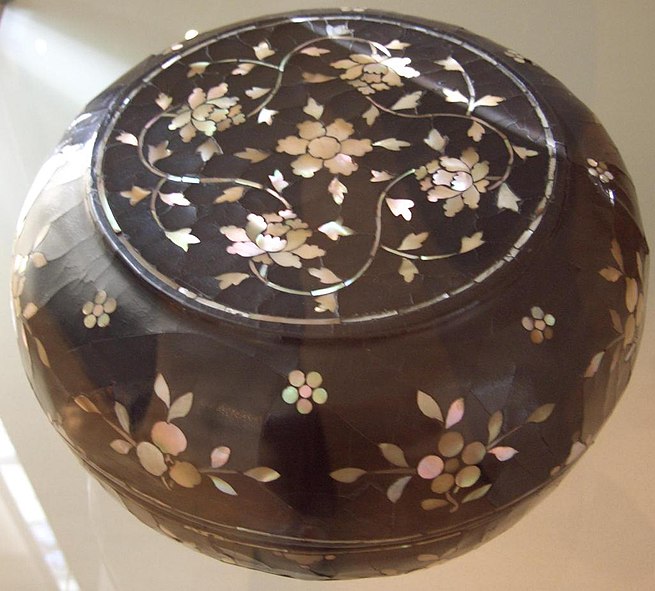Main Difference
The main difference between Lacquer and Resin is that the Lacquer is a liquid, powder coating material which is applied thinly to objects and Resin is a solid or highly viscous substance of plant or synthetic origin.
-
Lacquer
The term lacquer is used for a number of hard and potentially shiny finishes applied to materials such as wood. These fall into a number of very different groups.
The term lacquer originates from the Sanskrit word lākshā (लाक्षा) representing the number 100,000, which was used for both the lac insect (because of their enormous number) and the scarlet resinous secretion, rich in shellac, that it produces that was used as wood finish in ancient India and neighbouring areas.Asian lacquerware, which may be called “true lacquer”, are objects coated with the treated, dyed and dried sap of Toxicodendron vernicifluum or related trees, applied in several coats to a base that is usually wood. This dries to a very hard and smooth surface layer which is durable, waterproof, and attractive to feel and look at. Asian lacquer is sometimes painted with pictures, inlaid with shell and other materials, or carved, as well as dusted with gold and given other further decorative treatments.
In modern techniques, lacquer means a range of clear or coloured wood finishes that dry by solvent evaporation or a curing process that produces a hard, durable finish. The finish can be of any sheen level from ultra matte to high gloss, and it can be further polished as required. It is also used for “lacquer paint”, which is a paint that typically dries better on a hard and smooth surface.
In terms of modern products for coating finishes, lac-based finishes are likely to be referred to as shellac, while lacquer often refers to other polymers dissolved in volatile organic compounds (VOCs), such as nitrocellulose, and later acrylic compounds dissolved in lacquer thinner, a mixture of several solvents typically containing butyl acetate and xylene or toluene. Lacquer is more durable than shellac.
-
Resin
In polymer chemistry and materials science, resin is a “solid or highly viscous substance” of plant or synthetic origin that is typically convertible into polymers. They are often mixtures of organic compounds, principally terpenes. Many plants, particularly woody plants, produce resin in response to injury. The resin acts as a bandage protecting the plant from invading insects and pathogens.
-
Lacquer (noun)
A glossy, resinous material used as a surface coating; either a natural exudation of certain trees, or a solution of nitrocellulose in alcohol, etc.
-
Lacquer (noun)
A similar finish, baked onto the inside of cans.
-
Lacquer (verb)
To apply a lacquer to something or to give something a smooth, glossy finish.
-
Resin (noun)
A viscous hydrocarbon secretion of many plants, particularly coniferous trees.
-
Resin (noun)
Any of various yellowish viscous liquids or soft solids of plant origin; used in lacquers, varnishes and many other applications; chemically they are mostly hydrocarbons, often polycyclic.
-
Resin (noun)
Any synthetic compound of similar properties.
-
Resin (verb)
To apply resin to.
-
Resin (noun)
a sticky flammable organic substance, insoluble in water, exuded by some trees and other plants (notably fir and pine)
“clear resin had oozed to the surface, trickled down, and set”
-
Resin (noun)
a solid or liquid synthetic organic polymer used as the basis of plastics, adhesives, varnishes, or other products
“epoxy resins frequently cause dermatitis”
“the chassis is constructed of synthetic resin”
-
Resin (verb)
rub or treat with resin
“resined canvas”

